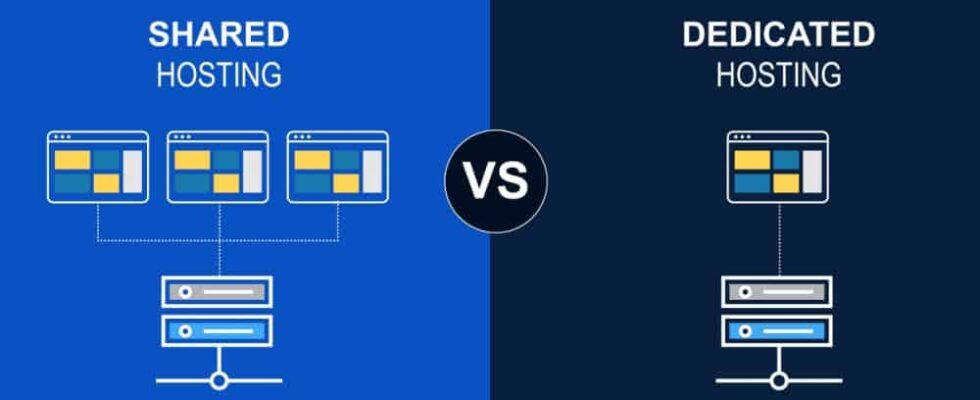In the rapidly evolving digital landscape of 2024, selecting the right hosting environment for your website is more critical than ever. Whether you opt for a dedicated server or a shared server can have significant implications for your site’s performance, security, and scalability. Understanding the nuances between dedicated and shared hosting is key to making an informed decision that best aligns with your website’s objectives and audience demands.
Understanding Dedicated Servers
A dedicated server offers the pinnacle of control, performance, and security by allocating an entire server’s resources solely to your website or application. This exclusivity means that your site enjoys all the server’s processing power, memory, and storage, without having to share these resources with other sites.
Key Benefits of Dedicated Servers:
- Unmatched Performance: Dedicated servers deliver superior performance, especially for websites with high traffic volumes or demanding applications, ensuring a smooth user experience.
- Enhanced Security: With a dedicated server, you’re not at risk from the vulnerabilities of other websites. Plus, you have the freedom to implement bespoke security measures tailored to your specific needs.
- Total Customization: Full root access to the server allows for complete customization. Install any software, configure settings, and adjust your hosting environment to perfectly suit your requirements.
Exploring Shared Hosting
Shared hosting is the starting point for many websites, providing a cost-effective and user-friendly option. Your website will be hosted on a server alongside multiple others, sharing the server’s resources. This can be an efficient solution for small to medium-sized websites with moderate traffic.
Key Benefits of Shared Hosting:
- Cost Efficiency: Shared hosting is highly affordable, making it an excellent option for startups, small businesses, or personal blogs.
- Ease of Management: Hosting providers often manage shared servers, handling maintenance, security updates, and technical support, which can be a relief for website owners without technical expertise.
- Scalability Options: Many shared hosting plans offer scalability features, allowing you to upgrade your resources as your site grows.
Making Your Choice in 2024
When deciding between a dedicated server and shared hosting, consider your website’s current needs and future growth.
- Opt for a Dedicated Server if:
- Your site experiences or anticipates high traffic volumes.
- You require extensive customization or run specialized software.
- Security and data privacy are paramount, especially for eCommerce or sites handling sensitive information.
- Choose Shared Hosting if:
- You’re launching a new website or have a small to medium-sized site with modest traffic.
- You’re looking for a budget-friendly hosting solution without the need for extensive customization.
- You prefer a hands-off approach to server management and maintenance.
Conclusion
As we navigate through 2024, the decision between dedicated and shared hosting should be based on a strategic evaluation of your website’s requirements, performance expectations, and budget constraints. While dedicated servers offer unparalleled performance and control, shared hosting can be a practical and economical choice for many websites. By carefully considering your site’s specific needs and growth plans, you can select the hosting option that not only meets your current demands but also supports your future ambitions.
